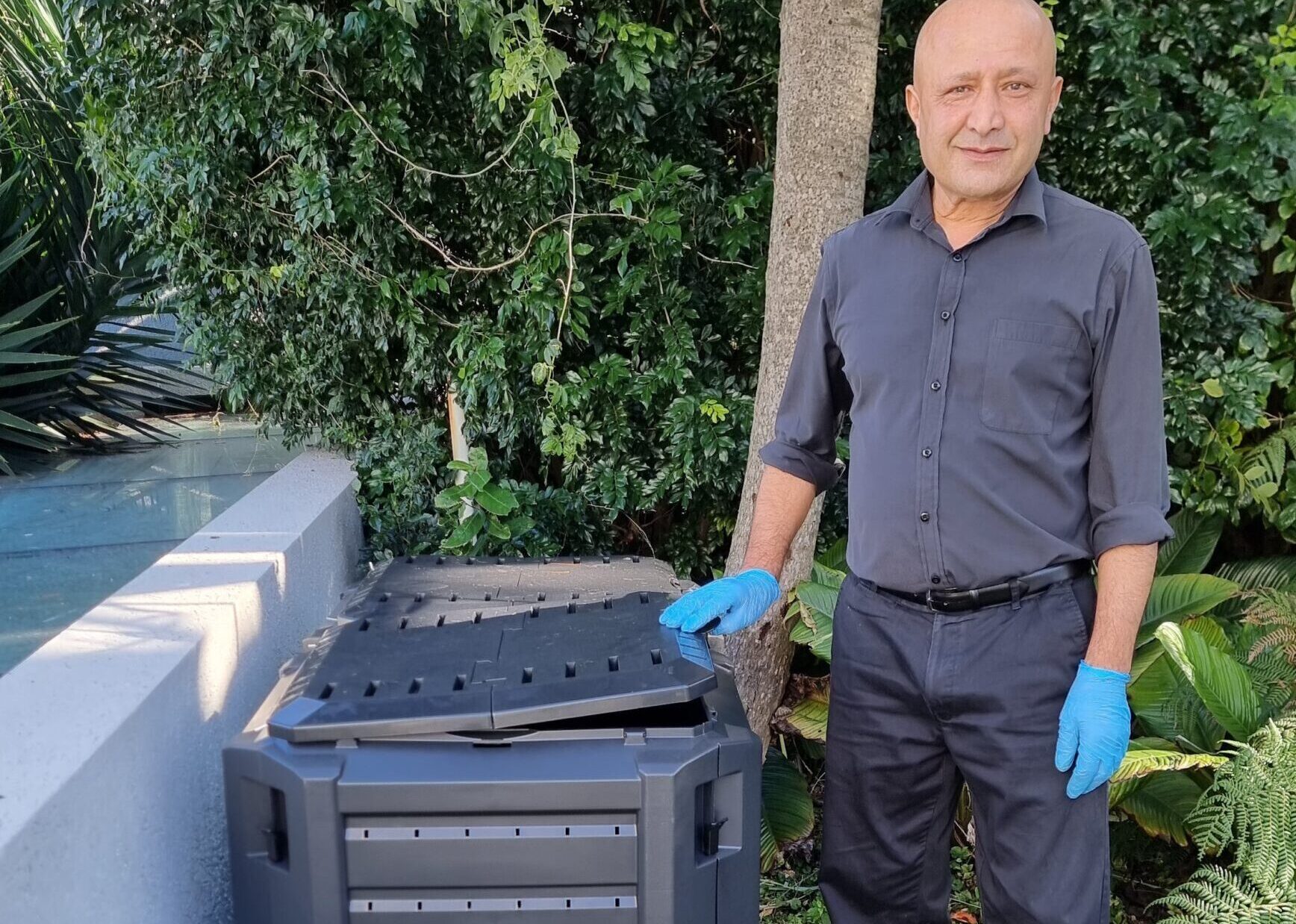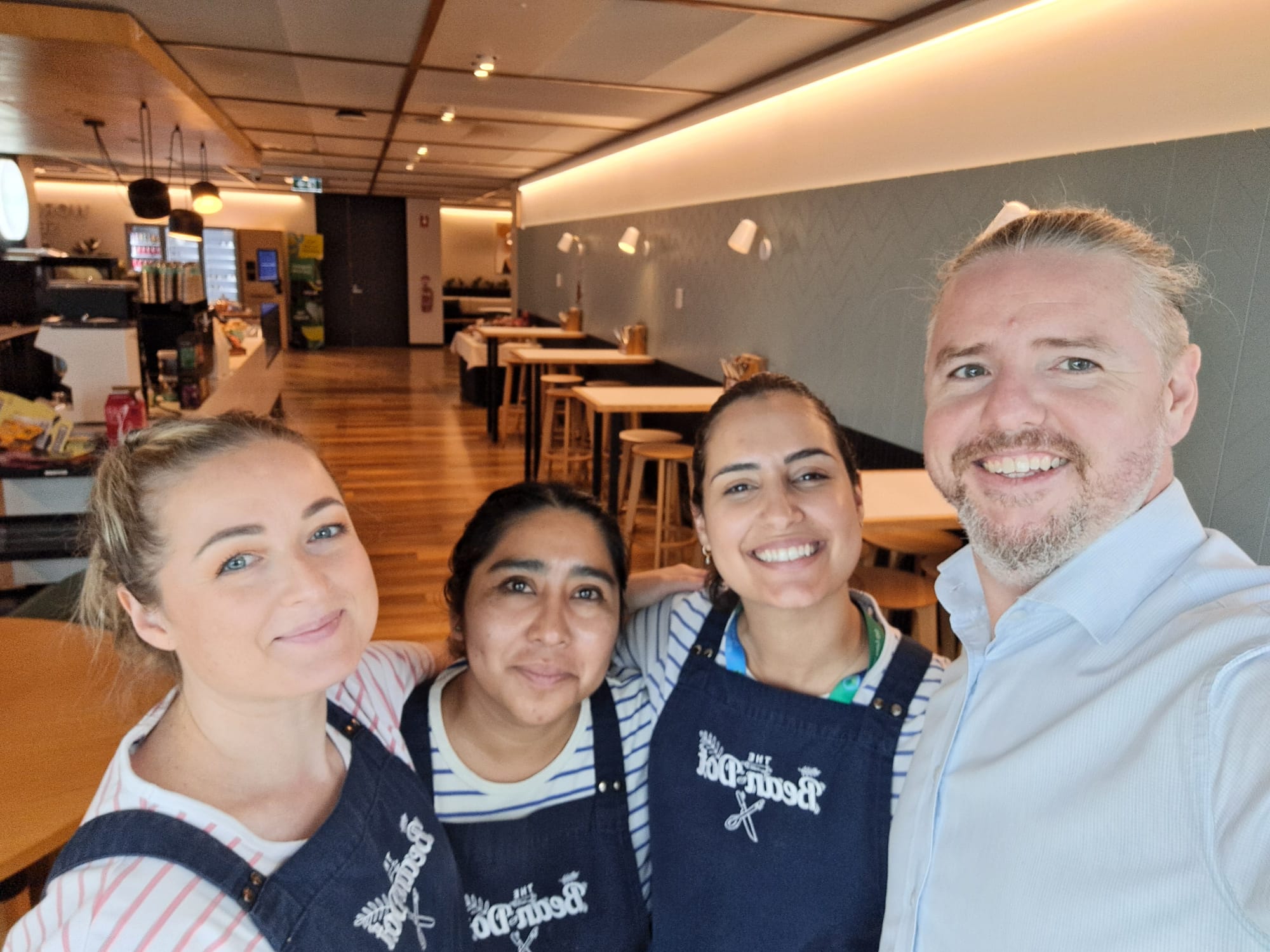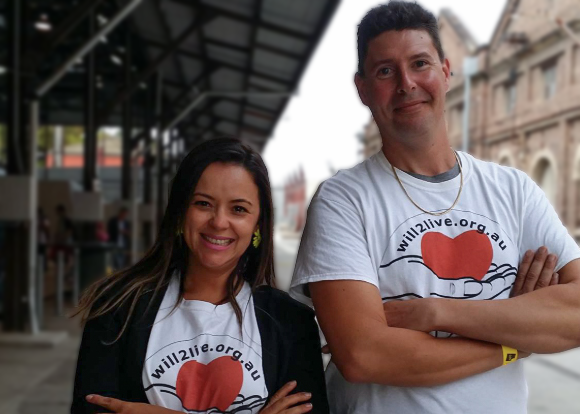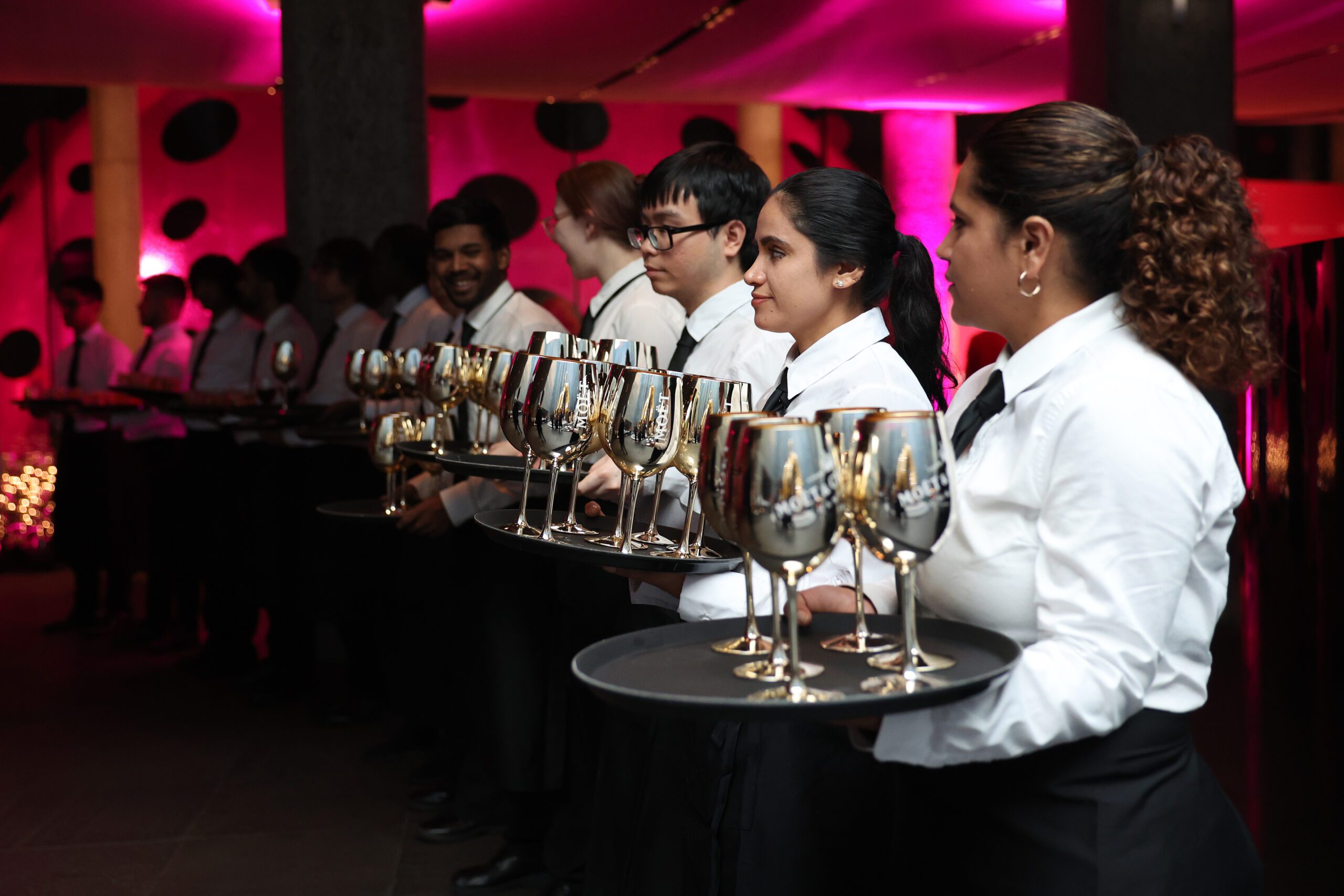Food waste is a prominent issue in the hospitality industry and throughout workplaces in Australia. As we function as leaders in both, we strive to pioneer solutions and best practise in collaboration with our clients to ensure operations embrace current trends and innovations that influence waste minimisation.
Recently, in partnership with one of our National Finance Clients, we introduced an innovative process to tackle food waste at site. The kitchen teams now use a food dehydrator to break down waste to 10% of its original size which is then stored in units outside where decomposition continues to transform the waste into fertiliser. The final step is to work with our landscaping contractors to complete the sustainable cycle – utilising the fertiliser across the onsite garden to enrich the various fruits and vegetables that are harvested for our menus.
Since its installation, we have averaged approximately 90kg of food waste turned into fertiliser each month.
Eli Blatch, Restaurant Associates Site Manager, says “having previously been a chef for 15 years, reducing food waste has always been an important goal for me personally. Working with our team to turn yesterday’s waste into tomorrows produce is something that we are incredibly proud of, and keen to continue well into the future.”
The benefits of turning food waste into fertiliser is substantial, not only for the environment but also for businesses:
- Reduces greenhouse gases. Transforming food waste into a quality resource rather than throwing it away will lower the methane emissions associated with food waste at landfills and foster more sustainable practices.
- Improves soil quality. As food waste is rich in nutrients, by turning it into fertiliser you are enhancing the soil, encouraging the growth of healthier crops and reducing reliance on artificial fertilisers.
- Economic efficiency. Can reduce the amount spent on waste management, save on purchasing fertiliser in the future, and can even open a new revenue stream if enough fertilise is produced to sell.
- Brand reputation. Prioritising sustainability through tangible waste management programs can improve brand reputation and establish the business as leaders in this area.
This is a valuable approach to food waste management and an innovative component to any wider business sustainability initiative. If you want to find out how the Restaurant Associates team can work with you to implement cutting edge solutions like this – get in touch with our experts.



